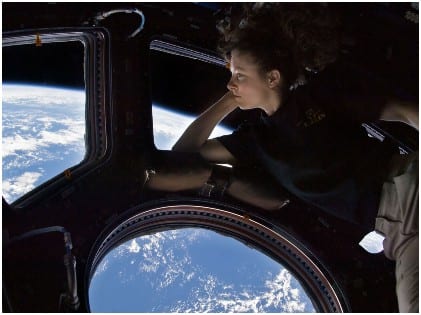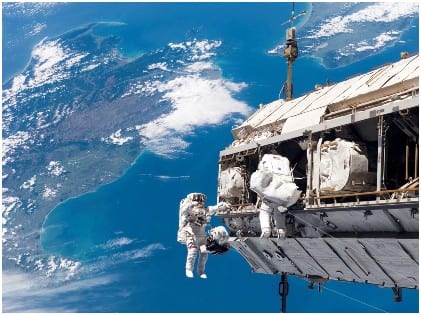Ever felt what it is like to stay in space? While the prospect might allure you, ask astronauts about their stay in the International Space Station (ISS), and they will narrate stories about how vital it is for them to maintain cleanliness, head to the bathroom, eat, drink and, keep fit. For starters, ISS, orbiting about 400 kilometers from the Earth, is a huge spacecraft home to several crews of cosmonauts and astronauts.
Akin to a typical science lab, here, all things that they must take from Earth. It also includes the conservation of essential resources like water and food, if any. Also, they should keep waste materials at a bare minimum. Let’s look at what prime lessons educators should learn from astronauts and utilize in the classroom.
Maintaining Personal Hygiene

Right from the time you were a child, you were given basic training about personal hygiene at home, school, in neighborhoods, or on vacations. But what do we imply by personal hygiene? You need to take a good bath, brush your teeth, floss and gargle, use the toilet and clean it after every use, and change your clothes frequently, preferably twice or thrice a day.
This is what astronauts also need to observe while fulfilling the basic personal hygiene rules. Since the space station is a small, cramped area- there’s a likelihood that almost 12 or 13 people need to share things. Now imagine if someone acts lackadaisical in performing what is rightfully expected of him!
Taking Care Of Teeth
First, in ISS, there’s gravity like on earth, so everything tends to ‘float.’ Inside, all things are weightless, including water, brush, and paste. So, they can swallow the toothpaste after brushing and clean their mouth using wet wipes. Astronauts need to close their mouth while using edible toothpaste, or the paste might flow out.
Going To The Bathroom

The fact that everything ‘floats’ also puts stress upon toilet use. Special toilets are created on the ISS (based on the Russian model ‘Zvezsda’). Much like the Russian, there’s another ‘situated on the American module.’ Astronauts need to attach the straps themselves inside so that they don’t float off!
Unlike earth-based ones, flush toilets don’t work. So, a suction tube carries all the waste materials in an air stream through the hole. Fluids like urine get collected and are often later recycled. The solid wastes are compressed and disposed of later.
Eating And Drinking
Exercise matters, but not without taking care of nutritional requirements. Food, as we know, is a great way to build social rapport. And even when they consume adequate energy and nutrients, they need to watch their calorie intake. Mealtimes are particularly important for astronauts since they serve as social gatherings. After all, they’ve been staying away from their families and friends for a long.
The food preparation is a skilled hob since weightlessness is a concern and must be adjusted to prevent foods from floating or falling off the plates. Along with it, there are special foods that astronauts need to consume to counter the ill effects of adapting to the space environment.
What Foods Can You Eat?
 This should sound interesting. Usually, the following foods are commonly eaten in space.
This should sound interesting. Usually, the following foods are commonly eaten in space.
Irradiated foods – When it comes to beef products, they are cooked, packaged in foil sacs, and sterilized using ionizing radiation.
Thermostabilized foods – These are heat-processed, like fishes (tuna), fruits in cans, and even desserts in plastic cups.
Rehydratable foods – Freeze-drying or water removal is the norm. Since they consume water before eating, these items work well after that – coffee, tea, orange juices, cereals like oats. You name it.
Fresh and natural form foods – Apples and bananas brought by new crews are mostly fresh supplies, and then there are nuts and cookies.
However, carrying all these can be expensive, so it’s better to stick to light foods that are easy to store. As you can understand, life on space stations throws some unique challenges to the astronauts, and without proper training, they cannot simply survive there. It is astonishing to know that they go through all this struggle every day for almost six months every time they go on a mission. And the fact that they do it all for the benefit of society is awe-inspiring!




